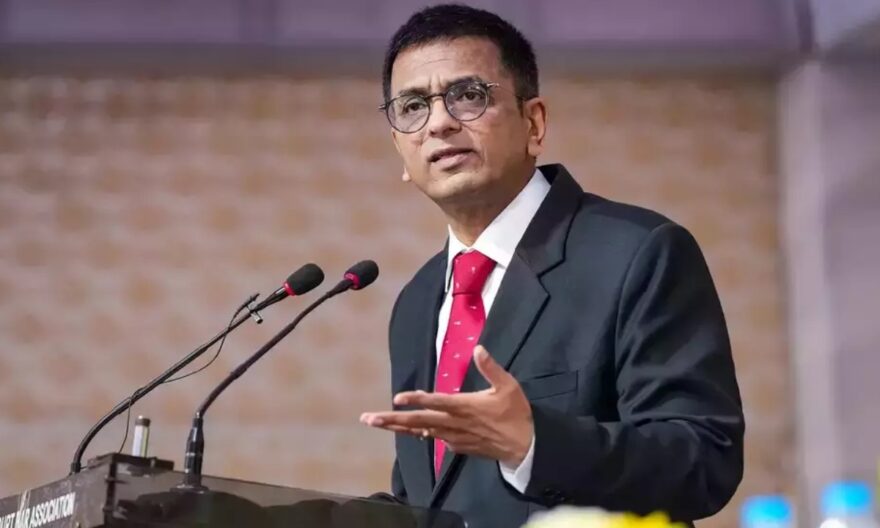
The Chief Justice of India (CJI), D Y Chandrachud, emphasized the importance of demystifying and simplifying the legal process to make it more accessible for citizens, including the marginalized communities. Speaking at the 19th Legal Services Authority Meet in Srinagar, he acknowledged that judges alone are not responsible for this task, everyone in the legal fraternity, including judges, has a role to play in achieving this goal.
CJI Chandrachud pointed out the challenges citizens face in filing First Information Reports (FIRs) due to economic and social barriers. Often, individuals require the assistance of specialized professionals like lawyers and paralegal workers to gain access to justice. He cited two cases that exemplify the need for oversight and timely administration of justice.
In the first case, a milkman was wrongly convicted of adulterating milk in 1980. The milkman hired a lawyer recommended through word of mouth, but the lawyer repeatedly failed to appear in court. After 40 years, the Supreme Court acquitted the milkman, underscoring the importance of legal aid, especially for those unaware of their rights.
The second case involved an accused facing nine charges under the Electricity Act. The accused pleaded guilty and received a sentence of two years for each charge. However, the sessions judge failed to mention that the sentences would run concurrently. Consequently, the accused was sentenced to 18 years in jail for electricity theft. Three years later, the accused appealed to the high court, but the petition was dismissed as the conviction was considered final. Ultimately, the Supreme Court had to intervene, highlighting the plight of those unable to access their rights.
Overall, these cases served as reminders of the significance of making the legal process more understandable and accessible for all citizens, particularly those who are marginalized.




